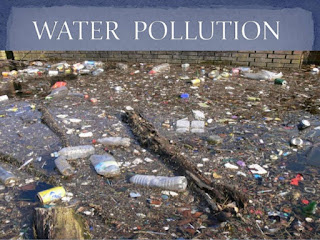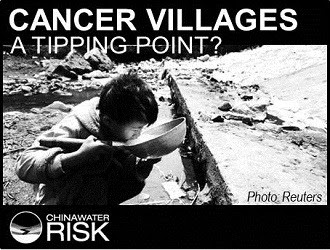The Government Is Encouraging Environmental Pollution in Poor Countries
Absence of environmental ethics in government sector of poor countries: "Environmental ethics mean taking care of environment voluntarily in everyday life. It is introduced by raising public awareness on environment. It is equally established with the strict enforcement of environmental laws. It is mainly the job of government of every country to promote environmental ethics.
Unfortunately corruption is rampant in environmental sector of every backward country. Their pollution control officials are inefficient, corrupt and incompetent mostly. So whatever they do for environmental care actually aims to fill their own pockets by taking bribe from polluters and close their cases illegally. This is how they crush environmental ethics instead of introducing it into the masses.
How environment officials think of environmental ethics?
Most of the environment officials in backward countries are government servants. Their salaries are very meager. A class one officer of government in any poor country earns hardly $300 per month. Against the rising inflation in such countries this initial pay of the government officer is insufficient to manage essential needs of a family of two-to-four persons. As a result environment officials want to increase their income by hook or by crook.
Soon after being hired, they first seriously think to introduce environmental ethics. But ultimately they find several improper means to earn more. First and foremost of them is misusing their authority by taking lenient view of an act of polluting and let a polluter hit the environment in return of bribe. It may range from $50 to $10, 000 depending upon the gravity of the act of polluting.
How environment officials take graft?
This is quite easy for environment officials of any backward country. They damn care all types of ethics. They take bribe without any hesitation because they can’t afford to survive with their meagre salaries. They eat the public money by doing nothing for pollution control. They just come to office, conduct meetings, review the reports and don’t take any action to punish the polluters. If someone asks them why they are not doing pollution control efficiently they have thousands of excuses. Mostly they lament;
1. They don’t have funds (but they regularly get salaries)
2. They don’t have manpower (but they regularly hire new staff)
3. They don’t have resources (but every green boss has at least one vehicle for personal use)
4. They are not allowed to take action against polluters (but do not tell who is not allowing them)
As a result they eat the government funds by taking salary apart from taking bribe from polluters by saving their skin by not exposing their acts of polluting. They don’t refer their cases of environmental violations to higher courts for legal action.
What environment officials save?
They don’t save the environment. They save the money they earn illegally. Their ultimate aim is to take bribe from polluters as much as they can and save it for their future use. They very smartly save their corruption money by depositing it into bank accounts of their next of kin to not let others know it is actually their black money.
So this is the level of environmental ethics in government officials of poor countries. It does not mean only superior environmental officials are involved in graft. From top to bottom all officials are fully involved in corruption in environment sector. Its proof is the rising level of pollution in every backward country. Secondly their environmental protection agencies avoid to take action against polluters. They damn care environment and think corruption, do corruption and save corruption."
'via Blog this'





Comments
Post a Comment